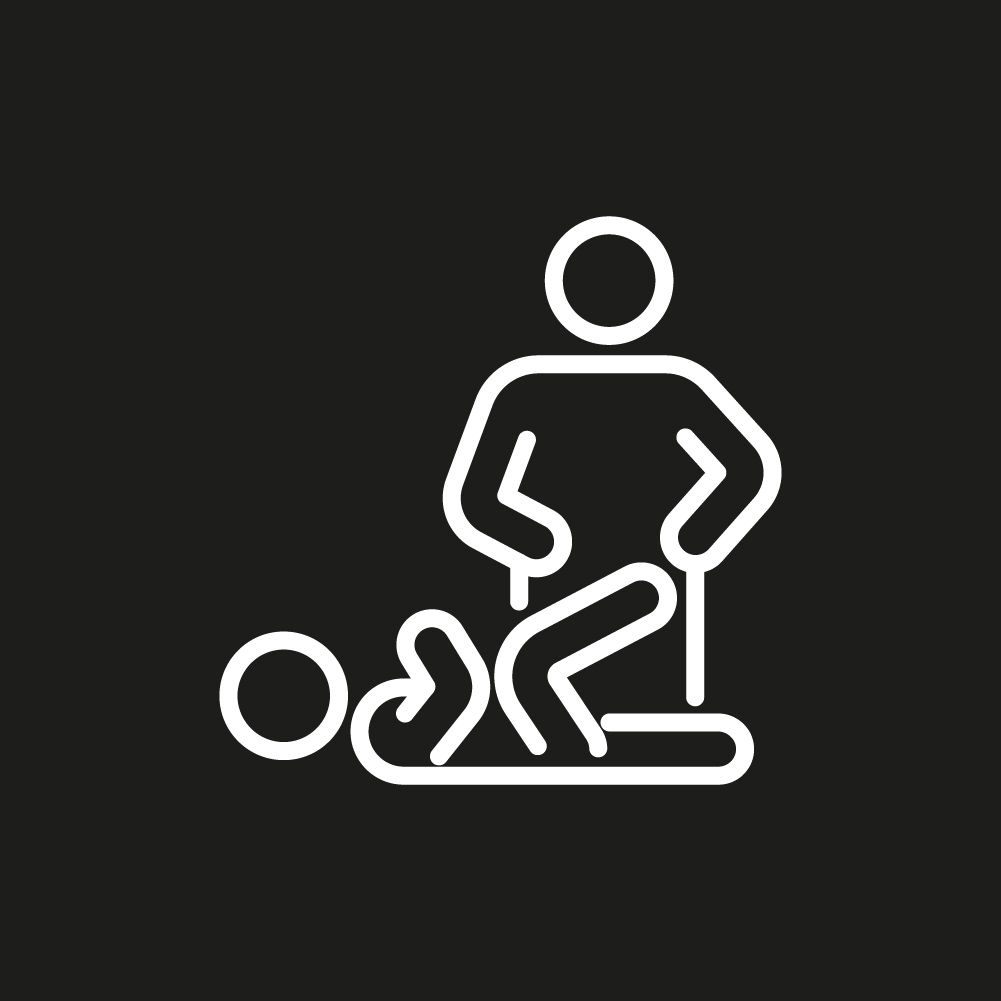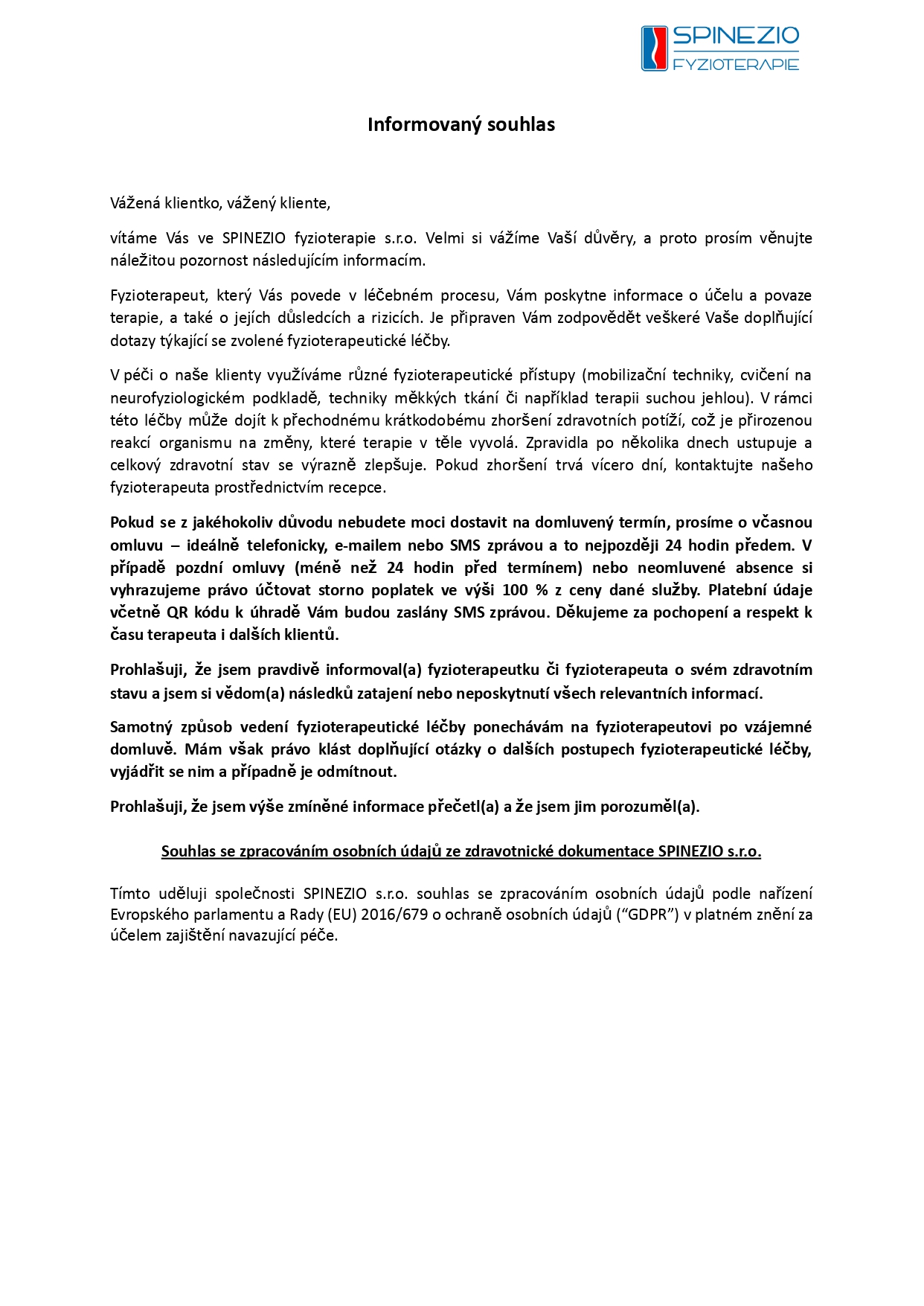Gynecological physiotherapy is a specialized part of physiotherapy care. In recent years, it has become more and more known to the general public, although it is still not a common practice in physiotherapists' offices. Gynecological physiotherapy has a truly irreplaceable role in the rehabilitation process and thanks to it we are able to influence many difficulties that were previously considered normal and should only be endured. Today, we are able to significantly relieve pain associated with gynecological or urological problems with targeted techniques and significantly increase the quality of life of our clients.
Gynecological physiotherapy can be divided into several basic areas of care, with one of the largest areas being problems caused by pelvic floor dysfunction
The pelvic floor is made up of muscles and ligaments and extends throughout our pelvis and has many important functions for us. It is part of the spinal stabilization system and works with both the abdominal and back muscles, its other function is to support the organs, but it also participates in the ability to conceive and carry a baby.
The pelvic floor is very sensitive to changes in tension, and since it is directly controlled by our emotional center, it is often stiff, tense, and full of painful points, especially in today's fast-paced world. This causes impaired blood circulation to the muscles inside the pelvis and also to the structures that directly attach to the pelvic floor, such as the uterus.
In women, this can manifest as painful and irregular menstruation, painful intercourse, and pelvic floor pain can also radiate into the body, causing women to experience lower back pain, migraines, pain between the shoulder blades, etc. Proper pelvic floor function is also essential when conceiving a baby, throughout pregnancy and childbirth, and in the postpartum period, when improper pelvic floor function can lead to incontinence. Thanks to targeted techniques for relaxing or strengthening the pelvic floor, we can solve or prevent these problems. When caring for the pelvic floor, we use direct muscle relaxation techniques, using the per rectum or per vaginam technique, active exercise and awareness of the pelvic floor, for example through yoga techniques, exercises according to Mojžíšová, and gentle work with the abdomen through visceral therapy.
Another area of gynecological physiotherapy is comprehensive care for pregnant women.
During pregnancy, the body goes through many changes that can strain the musculoskeletal system and cause a lot of pain. We try to help women experience this period as joyfully as possible. We work with women from the beginning on fitness, relaxation, stretching and strengthening muscles, we can also support carrying the belly by wrapping it with a rebozo, prepare the pelvic floor for childbirth through perineal massages and pelvic floor relaxation after 36 weeks of pregnancy. We are able to relieve musculoskeletal pain and, last but not least, help with turning the baby into the correct position.
The third area of care is the postpartum period.
After childbirth, the body slowly gets back into shape and everything in the body is now different than before. For example, postpartum stress incontinence, diastasis, scar pain after perineal incision/rupture, pelvic organ prolapse or prolapse may occur. If the woman gave birth by cesarean section, we also take care of the scar after the section, from the early stage.
In all these areas, we use a wide range of physiotherapy techniques such as soft and mobilization techniques, exercises in developmental positions, laser therapy (for scar care), targeted treatment of the pelvic floor using the per rectum and per vaginam method, diagnostics and therapy according to Ludmila Mojžíšová, and many others.
We realize that these difficulties are a very intimate and sensitive topic, which is why we work very sensitively and empathetically, and we approach each client individually and with respect.
Specific problems that we solve:
- Painful and irregular menstruation
- Loss system pain during pregnancy (in any trimester)
- Preparation for childbirth – pelvic floor relaxation from the 36th week of pregnancy
- Pelvic floor weakness
- Pelvic floor prolapse after childbirth
- Cesarean section scar
- Perineal incision/rupture scar
- Painful intercourse
- Inability to conceive (functional sterility)
- Diastasis
- Conditions after abdominal/pelvic surgery
- Incontinence
In SPINEZIO physiotherapy, this issue is addressed by:
- Mgr. Michaela Horká
- pelvic floor treatment using the per vaginam and per rectum method
- Mgr. Lucie Vokatá
How can you book an examination?
- By phone or email via reception (+420 725 736 026, info@spinezio.cz)
- Online via our reservation system at www.spinezio.cz















